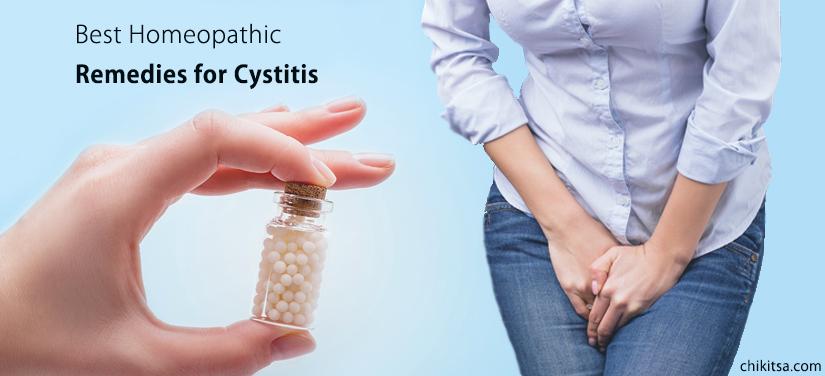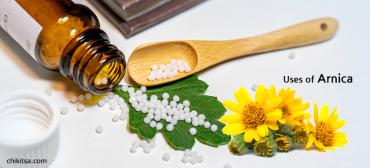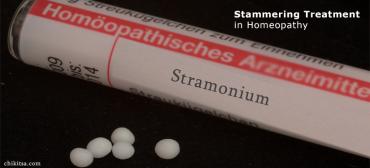Best Homeopathic Remedies For Cystitis

Cystitis is the term used to describe infection of the urinary bladder. Infection of the bladder comes under the umbrella of the term lower urinary tract infection. Urinary Tract Infections are more common in females than in males. This is due to the short size of the urethra and its close proximity with the anus. Therefore, maximum cases of urinary tract infections occur due to bacterial causes.
Infection of the Bladder Can be Classified as
- Acute Cystitis
- Chronic Cystitis
- Interstitial Cystitis – It is a form of a chronic bladder infection. No infective organism can be identified.
- Auto-immune Interstitial Cystitis
- Tuberculous Cystitis – Occurs as a complication of tuberculosis of kidneys.
- Non-infectious Cystitis – Due to radiation, chemotherapy and certain drugs, sanitary napkins, female hygiene sprays. Urine cultures show no growth of pathogens.
Causative Organisms Include
- E. coli
- Proteus
- Klebsiella
- Enterobacter
- Pseudomonas
Conditions Which Increase The Risk of Bladder Infection
- Cystitis occurs more commonly among sexually active individuals.
- Instrumentation of bladder such as catheterization or stent.
- Bladder Outflow Obstruction – stones, stricture or prostatic enlargement in males. This results in stasis of urine.
- Uncontrolled Diabetes Mellitus. Excess of sugar in urine or blood provides a favourable environment to bacteria to grow.
- In post-menopausal women - atrophic urethritis or vaginitis Infections occur due to lack of estrogen
- Vesico Ureteric Reflux – Back flow of urine from the bladder to kidneys.
- Neurological Manifestations such as neurogenic bladder, diabetic neuropathy and multiple sclerosis.
Symptoms of Bladder Infection are
- Pain and discomfort in the supra-pubic region. Pain is worse on a full bladder and reduces on passing urine.
- Increased urge and frequency of urination.
- Strangury – severe pain with a desire to urinate due to irritation and inflammation of the urinary bladder.
- Increased frequency of urination, but passes the small quantity of urine at a time.
- Dysuria – Painful urination.
- High grade fever with chills.
- Haematuria (passing blood in urine) is occasionally present, usually at end of urination.
Complications of Bladder Infection are
- Chronic inflammatory diseases of kidney and bladder
- Acute renal failure
- Acute pyelonephritis
- Certain organisms predispose to formation of stones.
Cystitis and Pregnancy:
Certain physiological changes that occur in a pregnant woman make them more prone to developing infections. Urinary tract infection is one the most common infections occurring during pregnancy. Infection of bladder during pregnancy requires prompt treatment due to a potential threat to the pregnant woman as well the growing fetus.
Management of Bladder Infection:
A wide range of antibiotics and instrumentation therapies have been used extensively in managing urinary tract infections.Several research papers indicate that homoeopathy can successfully manage cases of both acute and chronic bladder infections. These medicines not only help in giving relief from symptoms but also prevent recurrent infections.
Best Homeopathic Remedies For Infection of Bladder are:
1. Cantharis:
Constant, intolerable urge to urinate. Complaints due to bladder irritation. Dysuria. Paroxysms of cutting pain during urination. Scalding urine. Constant desire to urinate, but urine passes drop by drop.
2. Lycopodium:
Pain in back before urinating. Pain reduces after passing urine. Patient has to strain to pass urine. Urine passes slowly. Heavy red sediment in urine. Lycopodium work effectively in complaints associated with gastric derangements.
3. Equisetum:
This remedy has specific action on the urinary bladder. Dull pain and fullness in bladder, not relieved by passing urine. Frequent urging to urinate, scalding at the last few drops. Sharp, cutting pain in urethra during urination. Urine passes drop by drop.
4. Apis Mellifica:
Sensation of burning and soreness while urinating. Urine loaded with casts. Frequent, involuntary urination. Last few drops of urine burn. Strangury. Passes small quantities of high colored urine. Urine complaints with swelling or puffiness of face.
5. Sarsaparilla:
Passes scanty, turbid urine with blood. Severe pain at end of urination. Strangury. Painful urination. Red sand in urine. Cystitis with renal stones.
6. Staphysagria:
Indicated for cystitis in newly married women. “Honeymoon Cystitisâ€. Pressure on bladder. Frequent urge to urinate. Burning in urethra while passing urine and also when not urinating. Urging and pain even after urinating.
7. Sepia:
Passing red sand in urine which adheres to the pot. Chronic cystitis. Passes urine involuntarily while sleeping. Urine passes slowly.
8. Sabal Serrulata:
Specifically useful in irritation of genitor-urinary organs. Cystitis with enlargement of the prostate. Constant desire to pass urine at night.
9. Thlaspi:
This remedy is known for its anti-hemorrhagic and anti-uric acid effects. Passing of albumin in urine. Urine contains phosphates. Frequent desire to urinate. Painful urination with retention. Brick-dust sediment in urine. This remedy often replaces the use of the catheter. Chronic cystitis.
10. Copaiva:
Painful urination passes drop by drop. Infection of the bladder. Constant desire to urinate. Urine appears turbid and has an offensive smell.
11. Pareira Breva:
The remedy has marked action upon urinary organs. Useful in prostatic affections and catarrhal inflammation of the bladder. Sensation as if the bladder was distended. Constant urging to urinate. Has to strain. Can pass urine only when the person bends on knees and press head against the floor. Urine is scanty, thick with presence of blood.
Prevention:
- Maintaining hygiene of genitor-urinary area.
- Drinking plenty of water helps to flush out bacteria.
- Avoid using female hygiene sprays and prolonged use of sanitary napkins without changing.
- Urinating immediately after a sexual intercourse has been known to reduce the risk of urinary tract infections.
- Avoid holding urine for too long. Frequent evacuation of bladder prevents cystitis.










